Papers ponder future of historic nuclear opt-out
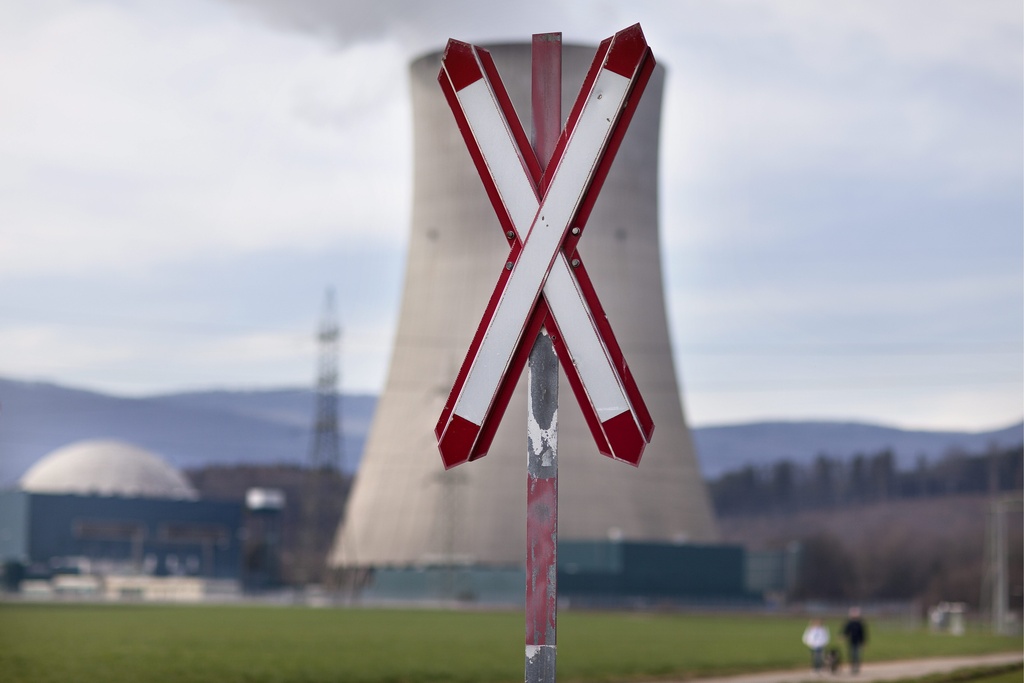
The decision taken by the Swiss government to phase out nuclear power by 2034 is widely welcomed in Thursday’s papers, many of whom describe it as “historic”.
At the same time, they point out that politically the decision was inevitable, and wonder what will replace nuclear power – and what the costs will be.
“The ideologically fraught question as to whether Switzerland should build another nuclear power station was settled with Fukushima,” says the Tages-Anzeiger of Zurich.
“Nuclear power is not an option for the next few decades, because it doesn’t stand a chance politically. When looked at closely, yesterday’s decision to phase out nuclear energy can be seen to be simply a matter of realpolitik.”
The French-language Le Matin agrees: “Popular pressure made the withdrawal inevitable,” it says.
Several papers make much of the fact that the cabinet was divided along gender lines, with the four women ministers in favour, and the three men against. La Liberté of Fribourg has a front-page cartoon showing the women sweeping away atomic symbols as their male colleagues slip and slide on the wet floor, while Der Bund of Bern – on the day after the Swiss football championship was decided – shows them kicking a ball into goal, which the hapless men are unable to stop.
The German-language tabloid Blick entitles its commentary, “Women point the way”.
The decision “is proof that the women in the cabinet have their eyes on the interest of the country, which they understand very well, and don’t allow themselves to be harnessed to the carts of the powerful lobby associations,” it says.
The French-language Quotidien jurassien is not quite so enthusiastic. The government’s decision shows “the very Swiss courage of the snail, whose choices must not impinge upon the comfort of its shell: it’s fine to turn the corner that cannot be avoided, but it is not bold enough to stick out its horns and put its head down and set off resolutely down a dark road.”
Power supply
As for a replacement for nuclear energy – which currently produces about 40 per cent of Switzerland’s power – the Tages-Anzeiger accuses the pro-nuclear economic associations of “panic-mongering” when they claim that Switzerland’s power supply will be endangered.
“Energy provision is a medium and long-term business: it can be planned, modelled and influenced. And the same is true of giving up nuclear power,” it says.
But it points out that gas-fired power stations, which are to be the immediate replacement, are environmentally unfriendly.
The French-language Le Temps also considers alternative sources. “By rejecting an early opt-out, the government has shown that it realises that to rely on gas-fired power stations will make its environmental aims harder to achieve.”
It says that recommendations which previously lacked a political majority can now be implemented, including measures to promote energy efficiency and green energy.
Many of the papers cite the warning by Energy Minister Doris Leuthard that nuclear power is in any case set to lose its price advantage over renewables because stricter safety measures and increased insurance premiums will push up costs.
Le Temps says that consumers will have to make “considerable” efforts economically, but says they will be “bearable”.
Blick goes further. It says the decision will create “new jobs in a booming market for renewable energy sources and energy efficiency”.
The Italian-language La Regione calls for investment into energy research. “It should not be impossible to find the resources, given the healthy state of our budget. And we shall all be called upon too to invest in the area of energy efficiency, if we don’t want to see our electricity bills rise too much,” it says.
Need for debate
The broadsheet Neue Zürcher Zeitung, which is close to business circles, is less enthusiastic. It takes a measured tone in its reporting of the decision: “There will be winners and losers, and a lot remains open,” it warns.
“There is evidently no desire to take the time to conduct a broad, objective debate about the risks and potential hazards,” says an opinion piece in the paper. “That is regrettable, since withdrawing from nuclear power does not come for free.”
“Phasing out nuclear energy may be the desire of the majority of the population at the moment, but it remains to be seen whether they are prepared to put up with the consequences.”
It warns of the danger of a new “chase after subsidies” to promote various kinds of renewable energies and energy saving measures, instead of concentrating on the finance of research.
In any case, the cabinet still has to come up with detailed plans, and the decision has to be debated in parliament. Since the change in policy will involve changes to the constitution, it will have to be put to a popular vote in a few years’ time, the paper points out.
Switzerland’s nuclear power stations are:
Beznau I (commissioned 1969)
Beznau II (1972)
Mühleberg (1972)
Gösgen (1978)
Leibstadt (1984)
Switzerland currently has five nuclear reactors which generate about 40% of the country’s energy but will gradually come off the power grid as of 2019.
In 1990 voters approved a ten-year moratorium for the construction of new nuclear power plants. In 2003 – three years after the end of the freeze – the electorate rejected an extension of or definite withdrawal from nuclear energy programmes.
Three sites for new nuclear power stations – Beznau, Gösgen and Mühleberg – have been given the stamp of approval by the national regulatory authorities.
It is widely expected that Swiss voters will have the final say on the construction of new reactors in a nationwide ballot in 2013 or 2014.

In compliance with the JTI standards
More: SWI swissinfo.ch certified by the Journalism Trust Initiative









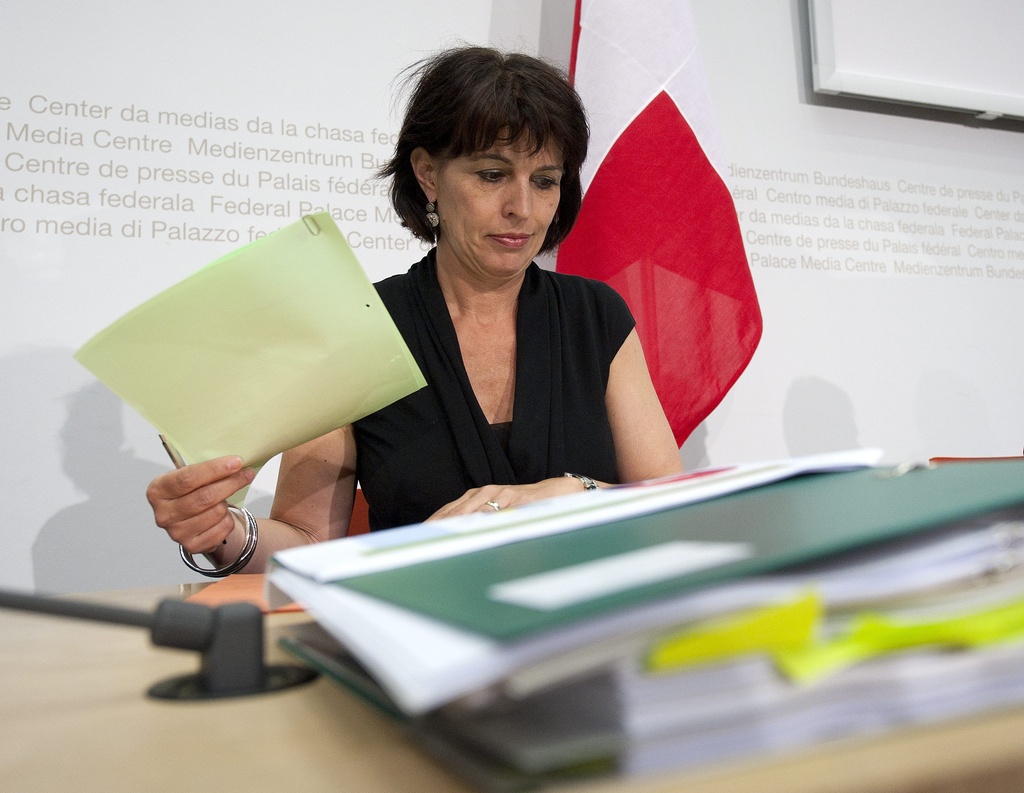
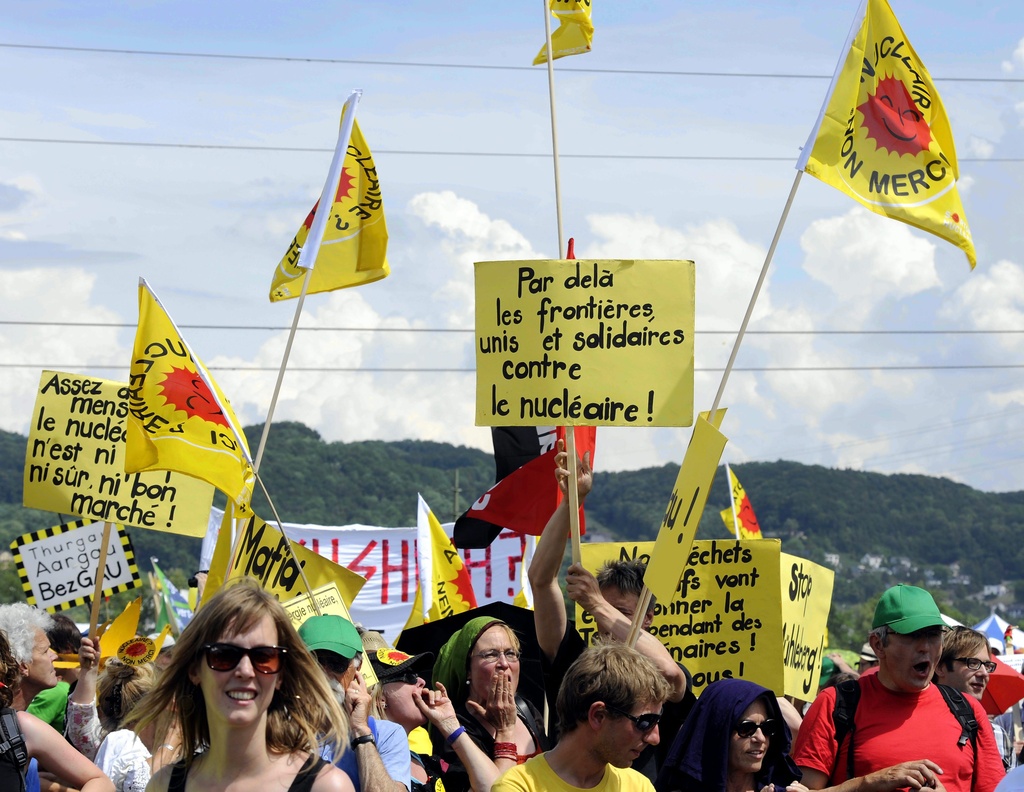
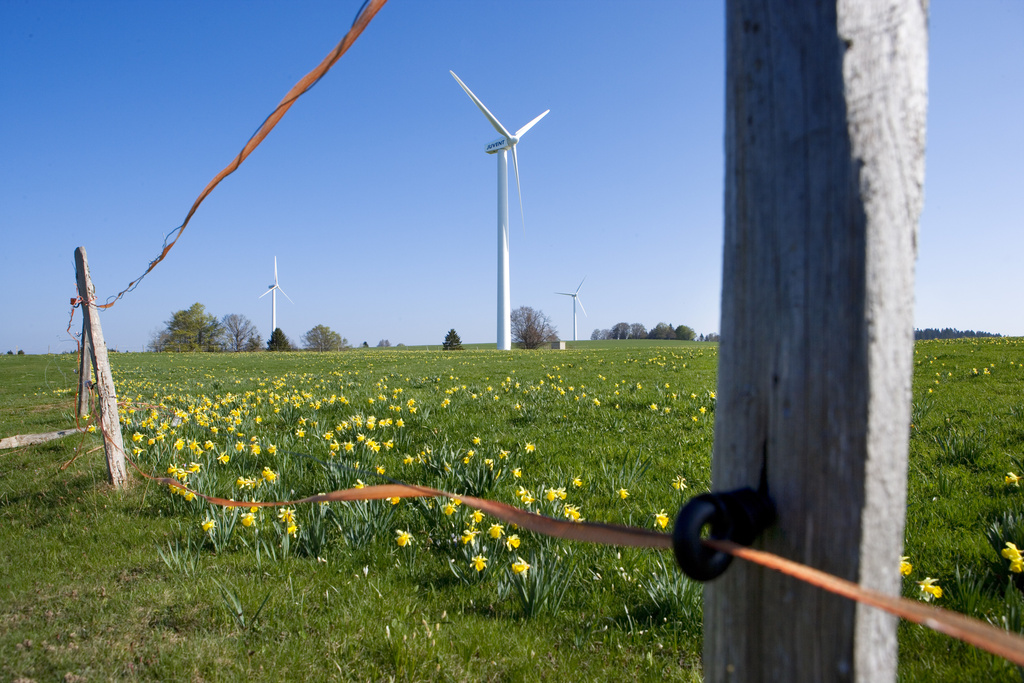

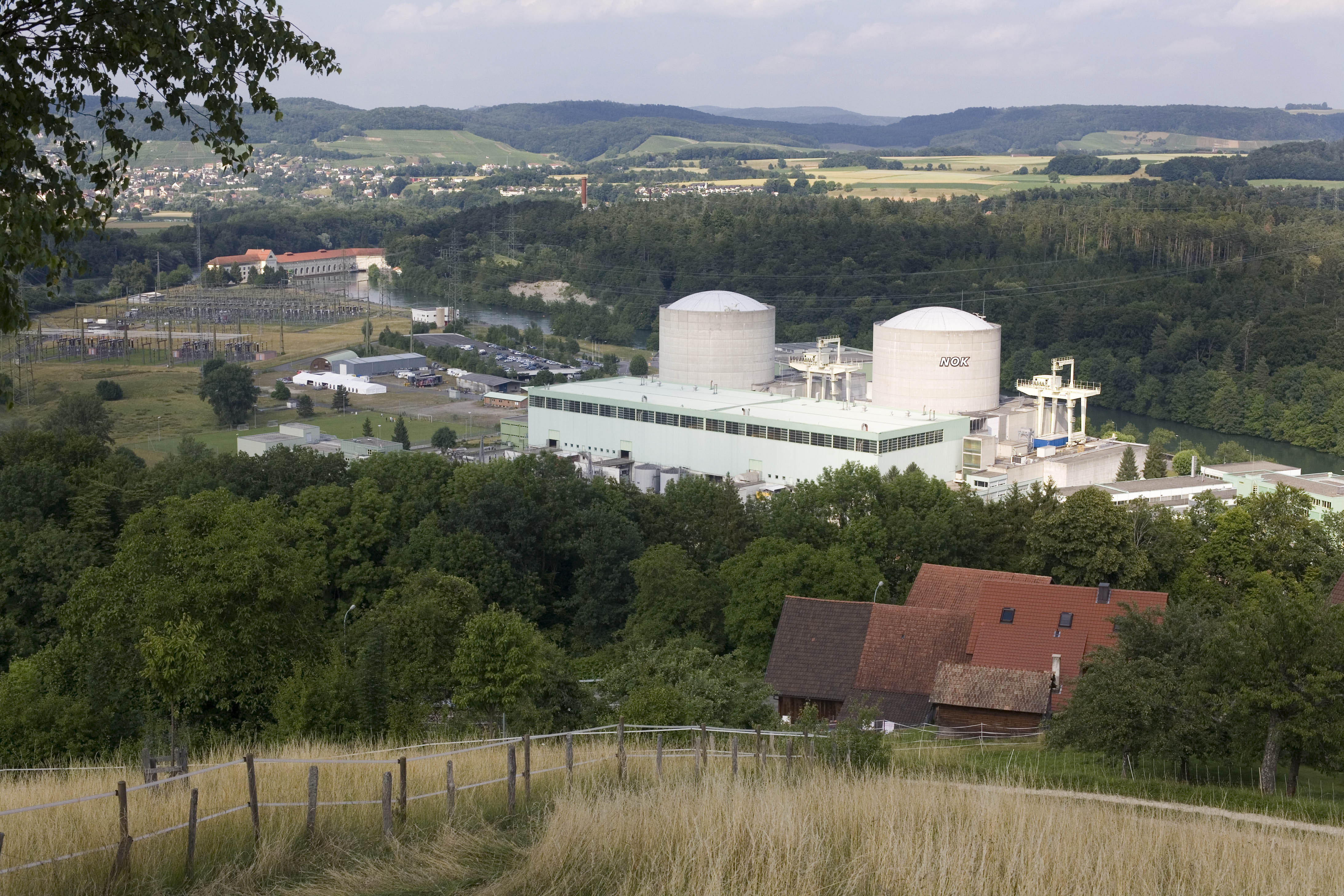
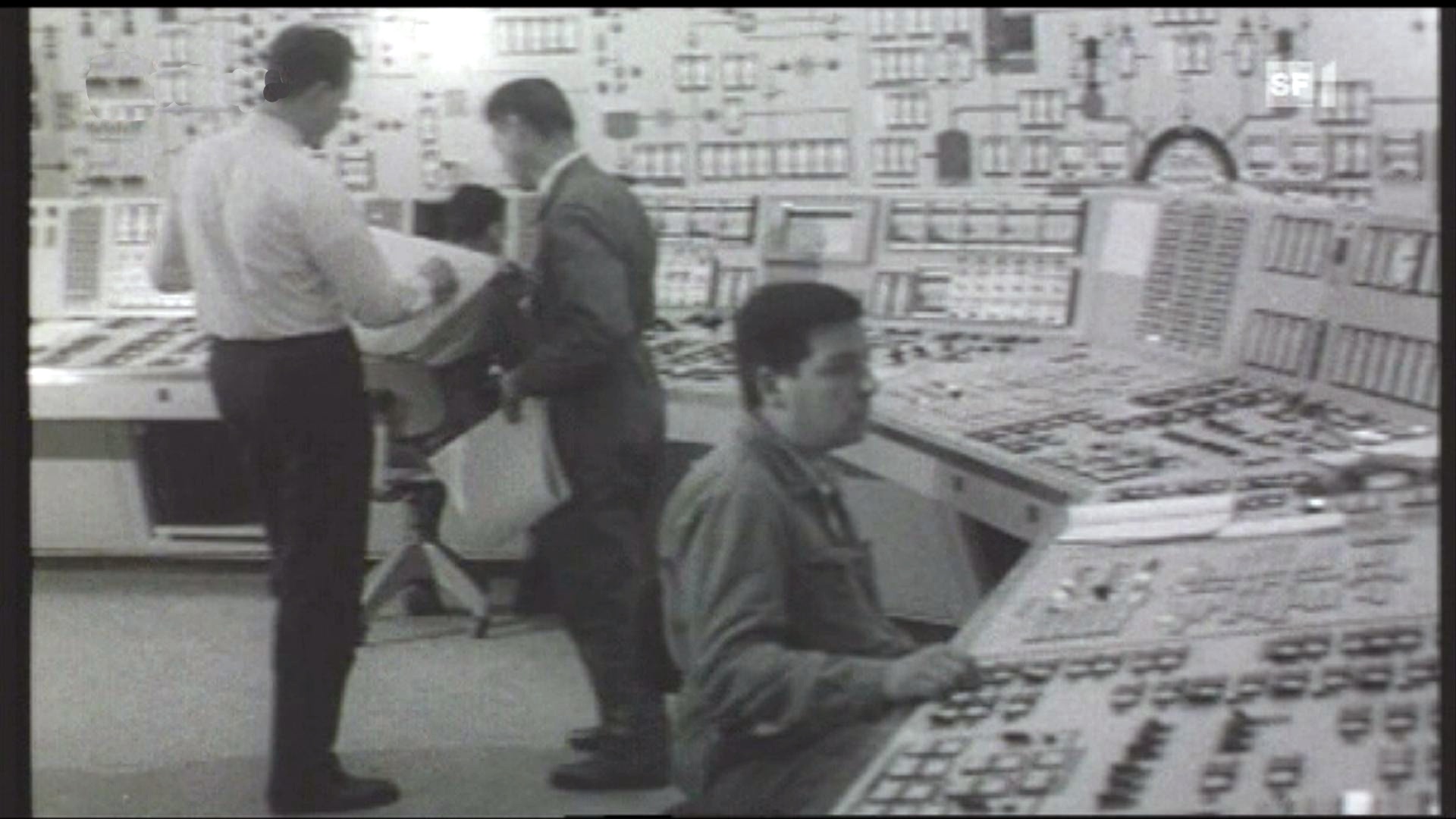
You can find an overview of ongoing debates with our journalists here . Please join us!
If you want to start a conversation about a topic raised in this article or want to report factual errors, email us at english@swissinfo.ch.